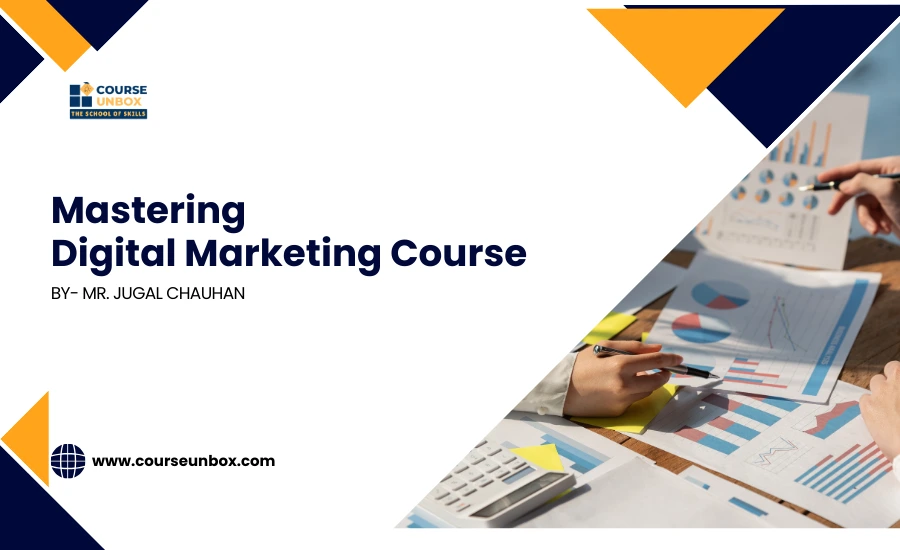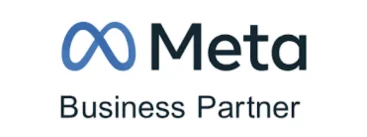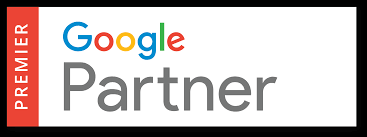In today’s fast-paced digital world, businesses thrive on effective online strategies. If you’re looking to advance your career, a digital marketing master’s program can be your gateway to success. Whether you’re a budding marketer or a seasoned professional, this program equips you with cutting-edge skills to dominate the digital landscape.
At Course Unbox (Digital Marketing Institute), we’ve designed a comprehensive digital marketing master’s program that blends theory with real-world applications. Let’s dive into what makes this program a game-changer!
Table of Contents
ToggleWhy Choose a Digital Marketing Mastery Course?
A digital marketing master’s program isn’t just another course—it’s a career accelerator. Here’s why it stands out:
- High Demand Skills – Companies are actively seeking digital marketing experts.
- Lucrative Career Paths – From SEO specialists to social media managers, the opportunities are vast.
- Future-Proof Knowledge – Stay ahead with the latest trends in AI, automation, and data analytics.
- Flexible Learning – Study online at your own pace while balancing work and life.
What You’ll Learn in a Digital Marketing Mastery Course
Our digital marketing master’s program covers all essential modules to make you an industry-ready professional:
1. Search Engine Optimization (SEO) – Rank Higher, Grow Faster
- Keyword Research & Strategy: Learn how to find high-traffic, low-competition keywords.
- On-Page SEO: Optimize titles, meta descriptions, headers, and internal linking.
- Off-Page SEO: Master link-building techniques like guest posting and influencer outreach.
- Technical SEO: Improve site speed, mobile-friendliness, and crawlability for search engines.
2. Pay-Per-Click (PPC) Advertising – Master Google & Facebook Ads
- Campaign Setup: Create high-converting ads on Google Ads and Meta platforms.
- Audience Targeting: Use demographics, interests, and retargeting to reach the right users.
- Budget Optimization: Maximize ROI with smart bidding strategies.
- Performance Tracking: Analyze CTR, conversion rates, and adjust campaigns for better results.
3. Social Media Marketing – Build Powerful Brand Presence
- Platform-Specific Strategies: Tailor content for LinkedIn, Instagram, TikTok, and YouTube.
- Content Calendar Planning: Schedule posts for maximum engagement.
- Community Management: Foster relationships with followers through active engagement.
- Paid Social Ads: Run and optimize sponsored campaigns for lead generation.
4. Content Marketing – Storytelling That Converts
- Blog Writing & SEO: Craft articles that rank and drive organic traffic.
- Video Marketing: Create engaging YouTube and TikTok videos.
- Infographics & Visual Content: Design shareable assets that simplify complex topics.
- Content Distribution: Amplify reach through email, social media, and syndication.
5. Email Marketing – Automated & High-ROI Campaigns
- List Segmentation: Personalize emails based on user behavior.
- Drip Campaigns: Automate follow-ups to nurture leads.
- A/B Testing: Experiment with subject lines, CTAs, and designs for better open rates.
- Analytics & Reporting: Track opens, clicks, and conversions to refine strategies.
6. Data Analytics – Measure What Matters
- Google Analytics 4 (GA4): Track user behavior and website performance.
- Heatmaps & Session Recordings: Understand how visitors interact with your site.
- A/B Testing: Compare different versions of web pages to improve conversions.
- ROI Calculation: Measure the effectiveness of marketing campaigns.
7. AI & Automation – The Future of Marketing
- ChatGPT & AI Tools: Automate content creation and customer support.
- Programmatic Advertising: Use AI to buy and optimize ad placements.
- Chatbots & Personalization: Enhance user experience with smart automation.
- Predictive Analytics: Forecast trends and customer behavior using AI.
3 Additional Key Modules in a Digital Marketing Mastery Course
8. E-Commerce Marketing – Drive Sales Like a Pro
- Shopify & WooCommerce SEO: Optimize product pages for search engines.
- Amazon & eBay Advertising: Run sponsored product ads for e-commerce growth.
- Cart Abandonment Strategies: Recover lost sales with email retargeting.
- Influencer Collaborations: Partner with micro-influencers to boost credibility.
9. Branding & Reputation Management
- Brand Identity Development: Create a unique voice and visual identity.
- Online Reputation Monitoring: Track reviews and manage PR crises.
- Customer Sentiment Analysis: Use social listening tools to gauge brand perception.
- Crisis Communication: Handle negative publicity with effective PR strategies.
10. Growth Hacking & Viral Marketing
- Viral Content Strategies: Learn what makes content shareable.
- Referral & Affiliate Marketing: Leverage word-of-mouth for rapid growth.
- Community Building: Create loyal fan bases through engagement tactics.
- Experiential Campaigns: Design interactive campaigns that generate buzz.

Tools You’ll Learn in Mastery Course
1. Google Analytics / GA4
A powerful tool used to track and analyze website traffic. It shows:
- Who visits your website
- What actions they take
- Which pages perform best
Students will learn to interpret user behavior, track conversions, and build reports that help shape marketing strategies.
2. Google Ads
This tool allows marketers to create and manage paid search and display ad campaigns.
You’ll learn how to:
- Create keyword-targeted ads
- Manage budgets and bidding
- Measure ad performance (CTR, CPC, ROI)
These are SEO and competitor analysis tools used by professionals worldwide.
Students will use them to:
- Perform keyword research
- Track rankings
- Analyze backlinks and competitors
- Audit websites for SEO improvements
4. HubSpot
A popular CRM and inbound marketing platform.
You’ll explore:
- Email marketing automation
- Lead nurturing workflows
- Social media management
- Customer journey tracking
These are social media management tools that help plan, schedule, and monitor content across platforms like LinkedIn, Instagram, Facebook, and Twitter.
Students learn to:
- Create posting calendars
- Monitor engagement
- Track performance analytics
6. Canva / Adobe Creative Cloud
Used for graphic design and content creation.
You’ll create:
- Eye-catching social media posts
- Blog banners
- Ad creatives
- Infographics
Canva is beginner-friendly, while Adobe tools (Photoshop, Illustrator) offer advanced capabilities.
7. Mailchimp
A widely-used email marketing platform.
You’ll learn to:
- Design email campaigns
- Segment audiences
- Automate drip campaigns
- Track open/click-through rates
8. Meta Business Suite (Facebook & Instagram Ads)
This tool is used to run and manage paid ads on Facebook and Instagram.
Students learn:
- Audience targeting
- Ad creation and placement
- Campaign analysis and A/B testing
9. WordPress / CMS Platforms
A Content Management System (CMS) for building and managing websites or landing pages.
Students learn:
- How to publish SEO-optimized blog content
- Customize site designs
- Use plugins to add features (forms, analytics, etc.)
10. ChatGPT & AI Tools
Artificial intelligence is reshaping marketing.
Students will explore:
- Content creation with AI (blogs, ads, social media posts)
- Customer support automation (chatbots)
- Data-driven campaign optimization
These tools help marketers work smarter and faster.
Who Should Enroll in a Digital Marketing Mastery Course?
This program is perfect for:
🔹 Marketing Professionals looking to upgrade their skills.
🔹 Entrepreneurs wanting to grow their business online.
🔹 Career Switchers aiming to enter the digital marketing field.
🔹 Students & Freshers seeking industry-relevant certifications.
Benefits of Our Digital Marketing Mastery?
✔ Industry-Recognized Certification – Boost your resume with a globally accredited credential.
✔ Hands-On Projects – Work on real campaigns and build a portfolio.
✔ Expert Mentorship – Learn from seasoned digital marketers.
✔ Job Placement Support – Get access to exclusive career opportunities.
Frequently Asked Questions (FAQs)
1. What is a digital marketing master’s program?
A specialized course that trains you in advanced digital marketing strategies, tools, and analytics.
2. How long does it take to complete the program?
Typically 6-12 months, depending on the learning pace.
3. Is prior marketing experience required?
No, beginners and professionals can both benefit from the course.
4. Will I get a certificate after completion?
Yes, you’ll receive a globally recognized certification.
5. What career options are available after this program?
Roles like Digital Marketing Manager, SEO Specialist, PPC Expert, Social Media Strategist, and more.
6. Are there live classes or self-paced learning?
We offer both options for flexibility.
7. How is this program different from free online courses?
Our digital marketing master’s program provides structured learning, mentorship, and job support.
8. Can I start my own agency after this course?
Absolutely! The program covers business strategies for freelancers and agency owners.
9. What tools will I learn during the program?
Google Analytics, SEMrush, Facebook Ads Manager, Mailchimp, and more.
10. Is financial aid available?
Yes, we offer flexible payment plans and scholarships.
Final Thoughts: Your Digital Marketing Journey Starts Here!
A digital marketing master’s program is more than just a course—it’s an investment in your future. At Course Unbox, we ensure you gain practical skills, industry insights, and the confidence to excel.
Ready to transform your career? Enroll today and become a certified digital marketing expert!
Call Now- +91 8923660886






